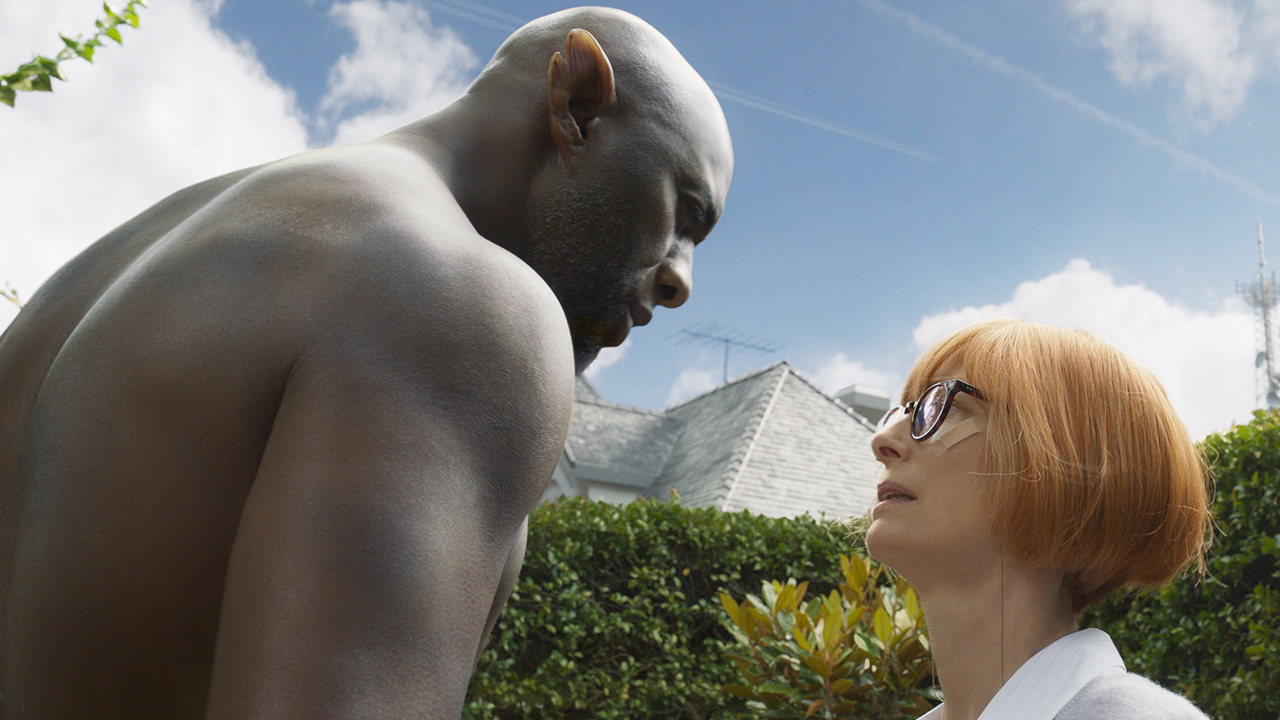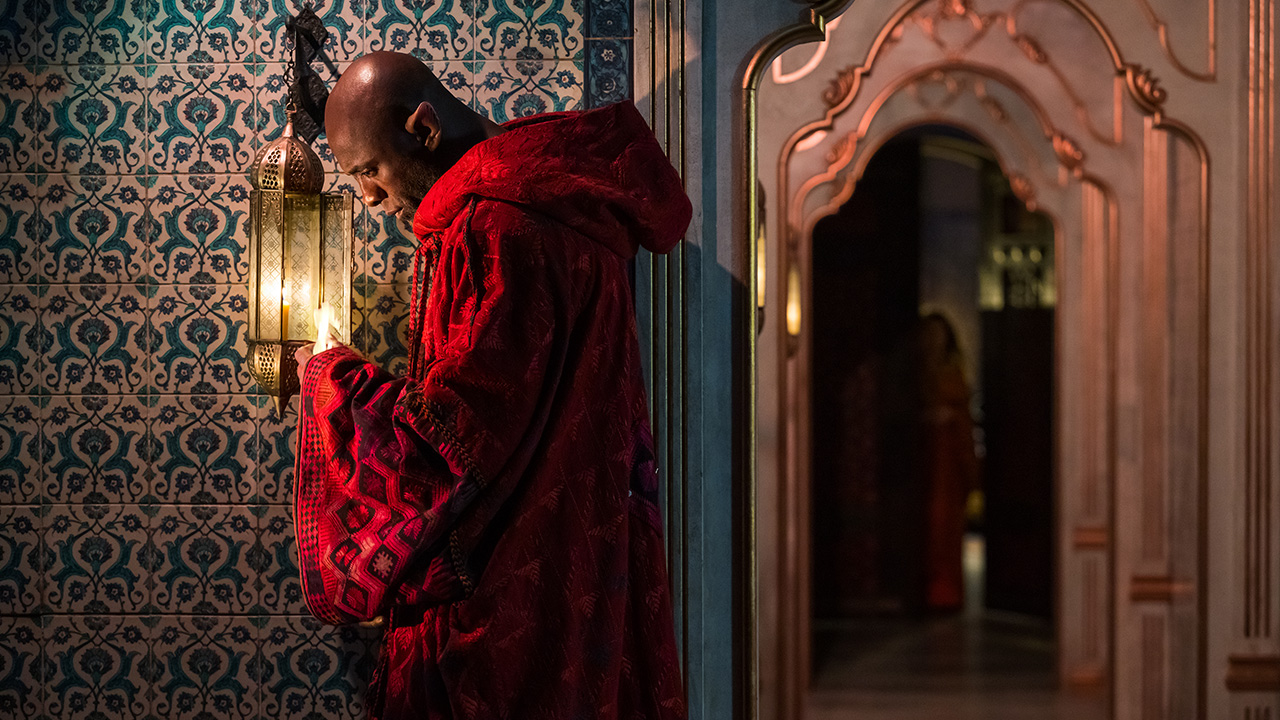George Miller gives us a story about stories with Three Thousand Years of Longing

Tilda Swinton and Idris Elba star in director George Miller’s romantic fantasy epic Three Thousand Years of Longing about a lonely woman who encounters a wish-granting djinn while holidaying in Istanbul. This story about stories may be a flawed gem, but it’s still a gem, writes Travis Johnson.
Three Thousand Years of Longing
How do you follow up the genre-shattering commercial and critical success of the 2015 juggernaut Mad Max: Fury Road? Well, if you’re Dr George Miller, after being crowned Australia’s Greatest Living Director (it’s been too long between drinks for Peter Weir, I guess), you tell a love story between a lonely academic (Tilda Swinton) and an honest-to-Allah djinn (Idris Elba). Sure. Why not?
Our academic is Alithea Binnie, a narratologist leading a lonely but satisfying—well, at least she says it’s satisfying—life who, on a work trip to Istanbul, releases a djinn (or genie, if you’re Disney) from an antique bottle she bought as a souvenir. Alithea has been suffering what she assumes are hallucinations of fantastical beings, but this soulful and sexy apparition is clearly standing in her hotel room—the very room where Agatha Christie wrote Murder on the Orient Express, we’re told—and offering her three wishes. However, as a student of stories she knows that magical wishes are a mug’s game, and so the djinn tells her the tale of his long and magical life to convince her to make her wishes and set him free.
Using this framework, Miller takes us from the courtship of Solomon and Sheba to the palace of Sulemein and beyond, encompassing the entire sweep of history (and no small amount of questionable Orientalism, but that’s a whole essay to itself) as the djinn narrates his life and many loves. It’s a sumptuous, visually dazzling film; cinematographer John Seale drenches the frame in rich desert yellows, burnt umbers and ochres, and deep, sensuous reds, painting a vivid picture of a fairytale Middle East for this metatextual riff on 1001 Nights. Seale, of course, shot Fury Road for Miller, and Three Thousand Years is a bit of a family affair; Miller’s wife, Margaret Sixel, is once again on editing duties, and he co-wrote the script, adapting A.S. Byatt’s The Djinn in the Nightingale’s Eye, with daughter Augusta Gore. The whole thing is simply beautiful, an intoxicating phantasmagoria, a rich tapestry woven together by Elba’s sonorous, seductive narration.

But what’s it all about? Love, of course, and loneliness, and the way we build little prisons for ourselves. The djinn’s prison is literal, but Alithea’s is psychological, and we see how her self-identification as “a solitary creature” and protestations that her self-contained existence is satisfying are soon proved false. It’s also a story about stories, and how we use them to explain the inexplicable to ourselves even in an age of scientific rationalism. Maybe there’s something in the air; it’s interesting that Three Thousand Years of Longing came along in the same month as Netflix’s adaptation of The Sandman, but we’ve been tackling this topic forever—cinematically, Terry Gilliam’s The Adventures of Baron Munchausen seems like an obvious candidate for comparison.
Things get a bit shaky in the final act of the film, though, as Miller and company struggle to get us to a conclusion that ties up and honours what has come before. A subplot involving a couple of racist retirees who side-eye the djinn when Alithea takes him back to her London flat seems surplus to requirements, and the actual climax, while satisfying the conditions of the plot, doesn’t quite have the emotional impact we’ve come to expect from Miller. That might make Three Thousand Years of Longing a flawed gem, but it’s still a gem—rich and multifaceted in a way few films are these days.




















